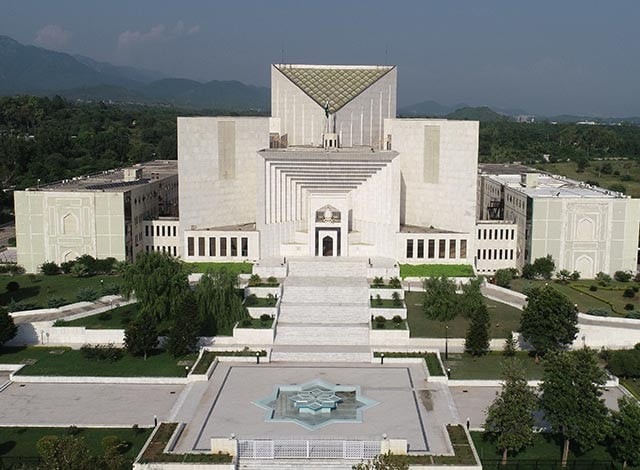Crime scene preservation key, says SC
Says tendency to rely on outdated investigative methods puts a question mark on justice system

The Supreme Court has ruled that for the purposes of the criminal justice system, investigating agencies have to move towards scientific evidence to establish a crime and proper care and caution must be taken to preserve and protect the crime scene.
"The tendency to rely on outdated investigative methods places a big question mark on the effectiveness of the criminal justice system,” said a nine-page order authored by Justice Ayesha Malik
Justice Ayesha was part of a three-member bench presided over by Justice Muhammad Ali Mazhar which rejected a petition against acquittal of an accused in a murder case.
The court noted that it recognized the fact that each case has to be investigated based on facts.
“However, cases such as the instant case highlight the inadequacy of the investigation agency and how the role of forensic science has been downplayed if not overlooked.
“Crime scenes that are not managed well and do not rely on science will lead to poor-quality evidence and erroneous acquittal," it added.
The judgement said the cornerstone of the criminal justice system is the effective functionality of an investigating agency and prosecution.
"The principle of fair trial and due process under Article 10A of the Constitution specifically mandates this. The dispensation of justice and fair adjudication require that the accused be equitably treated, investigated, and prosecuted in accordance with the law."
The judgement noted that it is the duty of the prosecution to establish the guilt against the accused beyond a reasonable doubt.
"The House of Lords in Woolmington has held that the accused is not bound to satisfy the court of their innocence. While applying Woolmington, the Federal Court in Safdar Ali has held that the burden of proving the general issue of the accused’s guilt lies, from first to last, upon the prosecution."
The judgement further noted that in the Tariq Pervez case, this court has held that the accused is entitled to the benefit of the doubt “not as a matter of grace and concession but as a matter of right”.
"Our concern herein is that a faulty investigative process will continuously dampen trust and confidence in the criminal justice system. Time has come for the investigation agency to recognize these inherent flaws and concerns in its methodology, and it needs to work towards specializing its investigative functions and separating the same from other police duties."
The court said the police force must make a concerted effort to shift its investigation techniques to include and rely on forensic science and accordingly, train specialized officers in this field.
"It is essential to emphasize the importance of forensic science in the criminal justice system. Forensic deals with ‘the application of scientific techniques to provide objective, circumstantial evidence’.
"Forensic science is a science of interest to the legal system,’ whose objective is to ascertain what happened in the recent past. Forensic science means nothing more than the science which is used in the courts of law for the purposes of detection and prosecution of crime.
“This science plays a significant role in the criminal justice system by providing data that can be used to assess the degree of guilt of a suspect," the verdict added.



















COMMENTS
Comments are moderated and generally will be posted if they are on-topic and not abusive.
For more information, please see our Comments FAQ